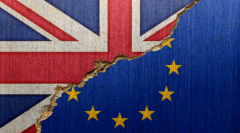As Brexit negotiations approach their initial deadline, U.K.’s plans to renegotiate a quick trade deal with WTO members once it leaves the EU bloc has been met with disdain by some of their trading partners. U.K.’s shortcut deal proposed“essentially copying the same trade deal that the EU and WTO has and then use the same wording in a document covering the U.K.’s new membership”. Russia, U.S., New Zealand, Japan, and Moldova, among others, have raised serious concerns about this since late 2017, and thus did not offer their approval of the fast-track deal last week. They also blocked U.K.’s access to WTO’s Government Procurement Agreement, an accord that would open and smooth out access to government procurement contracts for the signing parties.
Their reasons for opposing U.K.’s proposal have varied: for the U.S., some of the paperwork lacked key forms and regulatory requirements and updates. Russia said that “the draft UK schedule of tariffs and quotas was inconsistent with its obligations under several basic WTO provisions”. In fact, the EU itself does not have a currently ratified list of tariffs at WTO since Croatia joined in 2013, because the WTO process is so slow. Moldova clung on to a grudge: having not been listened to for months by British officials when trying to obtain a diplomatic visa, they have raised concerns whether similar delays are to be expected for Moldovan businesses, leaving them at a disadvantage relative to more preferred trading partners.
However, there is one other underlying reason for these governments’ reluctance to speed up the process and for their desire to bring about new long-drawn negotiations. This can be traced back to what Bhagwati and Irwin called in 1987 “The Return of the Reciprotarians”: the belief that trade liberalization is only beneficial if other countries liberalize to the same extent, or more. Otherwise, the belief goes, countries that remain protectionist will gain at the expense of the countries that have opened their trade borders.













Leave A Comment